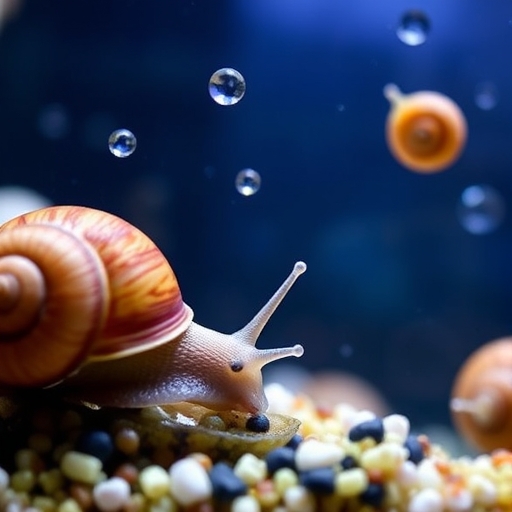How Long Do Snails Live in an Aquarium?
Aquarium snails are often considered a beneficial addition to the aquatic ecosystem due to their role in algae control and waste management. However, many aquarium enthusiasts wonder: how long do these creatures live? Understanding the lifespan of aquarium snails is crucial for proper care and maintenance. We will explore various factors that influence snail longevity, common types of aquarium snails, and tips for ensuring a long and healthy life for these fascinating creatures.
Understanding Snail Lifespan
The lifespan of snails can vary significantly depending on several factors, including species, environmental conditions, and care practices. Generally, snails can live anywhere from 1 to 10 years in an aquarium setting.
Factors Influencing Lifespan
1. Species: Different species of snails have varying lifespans. For instance:
-
- Apple Snails: Typically live 3 to 5 years.
- Nerite Snails: Can live up to 1 to 2 years.
- Mystery Snails: Generally live around 3 to 4 years.
- Ramshorn Snails: Usually have a lifespan of 2 to 3 years.
2. Water Quality: Snails are sensitive to water parameters. Poor water quality can lead to stress and health issues, reducing their lifespan. Key factors include:
-
- pH level
- Ammonia and nitrite levels
- Temperature
- Hardness and alkalinity
3. Diet: A balanced and nutritious diet is essential for snail health. Snails require calcium to maintain their shells and should be fed a variety of foods, including:
-
- Algae wafers
- Blanched vegetables (e.g., zucchini, spinach)
- Calcium supplements
4. Tank Mates: The presence of aggressive fish or other tank mates can lead to stress or injury in snails. Choosing compatible tank mates is crucial for their well-being.
5. Tank Size and Environment: Snails require adequate space to thrive. A larger tank with hiding spots and appropriate substrate can promote a longer lifespan.
Common Types of Aquarium Snails and Their Lifespans
| Snail Type | Average Lifespan | Notable Characteristics |
|---|---|---|
| Apple Snail | 3 to 5 years | Large, colorful, and can grow quite big |
| Nerite Snail | 1 to 2 years | Small, excellent algae eaters, non-reproducing in freshwater |
| Mystery Snail | 3 to 4 years | Popular for their unique colors and sizes |
| Ramshorn Snail | 2 to 3 years | Distinctive spiral shell, good algae eaters |
| Malaysian Trumpet Snail | 1 to 3 years | Burrowing behavior, helps aerate substrate |
How to Care for Snails in an Aquarium
To ensure your snails live a long and healthy life, proper care is essential. Here are some tips:
1. Maintain Water Quality
-
- Regular Testing: Use water testing kits to monitor pH, ammonia, nitrite, and nitrate levels regularly.
- Frequent Water Changes: Change 10-20% of the water weekly to keep it clean and reduce toxins.
- Filtration: A good filtration system will help maintain water clarity and quality.
2. Provide a Balanced Diet
-
- Calcium Sources: Offer calcium-rich foods or supplements to help snails maintain strong shells.
- Varied Diet: Include different food sources to ensure they get essential nutrients.
- Avoid Overfeeding: Feed only what they can consume in a few hours to prevent water pollution.
3. Create a Suitable Environment
-
- Tank Size: Choose an appropriately sized tank; a minimum of 10 gallons is recommended for most species.
- Substrate: Use a substrate that allows burrowing (e.g., sand or fine gravel) for species like Malaysian Trumpet Snails.
- Hiding Spots: Provide decorations, plants, and caves for snails to hide and feel secure.
4. Choose Compatible Tank Mates
-
- Peaceful Fish: Opt for peaceful fish species that won’t harm snails.
- Avoid Aggressive Species: Keep snails away from aggressive fish that may see them as food.
5. Monitor for Health Issues
-
- Regular Observation: Keep an eye on your snails for any signs of illness, such as lethargy, shell damage, or unusual behavior.
- Treatment: If you notice any health issues, promptly research and apply appropriate treatments.
Common Health Issues in Aquarium Snails
Snails can face various health issues that may affect their lifespan. Here are some common problems and their solutions:
1. Shell Problems
-
- Symptoms: Soft, deformed, or damaged shells.
- Causes: Insufficient calcium in the diet or poor water quality.
- Solution: Increase calcium supplementation and ensure stable water parameters.
2. Respiratory Issues
-
- Symptoms: Difficulty floating, gasping at the surface.
- Causes: Poor water quality or high ammonia levels.
- Solution: Perform water changes and improve filtration.
3. Stress
- Symptoms: Hiding more than usual, lack of appetite.
- Causes: Aggressive tank mates or poor living conditions.
- Solution: Reassess tank mates and provide a more suitable environment.
Frequently Asked Questions (FAQ)
How can I tell if my snail is healthy?
Healthy snails are usually active, have a firm and intact shell, and respond to stimuli. If your snail is hiding more than usual or has a damaged shell, it may not be healthy.
Do snails require a heater?
Most aquarium snails do well in a temperature range of 70-80°F (21-27°C). If your tank’s temperature fluctuates outside this range, a heater may be necessary.
Can snails reproduce in a freshwater aquarium?
Some species, like Mystery Snails and Apple Snails, can reproduce in freshwater, while Nerite Snails typically cannot. If you want to manage snail populations, consider the species you choose.
How often should I feed my snails?
Feed your snails every other day or as needed. Monitor their eating habits and adjust the amount accordingly to prevent overfeeding.
What should I do if my snail dies?
If a snail dies, promptly remove it from the tank to prevent water contamination. Check water quality and ensure the remaining snails are healthy.
Conclusion
Understanding the lifespan of snails in an aquarium setting is essential for any aquarium enthusiast. By providing the right conditions, diet, and care, you can ensure that your snails thrive and contribute positively to your aquatic ecosystem. With proper attention, these fascinating creatures can live for several years, bringing beauty and balance to your aquarium. Remember to monitor their health regularly and adjust their environment as needed to promote longevity.





